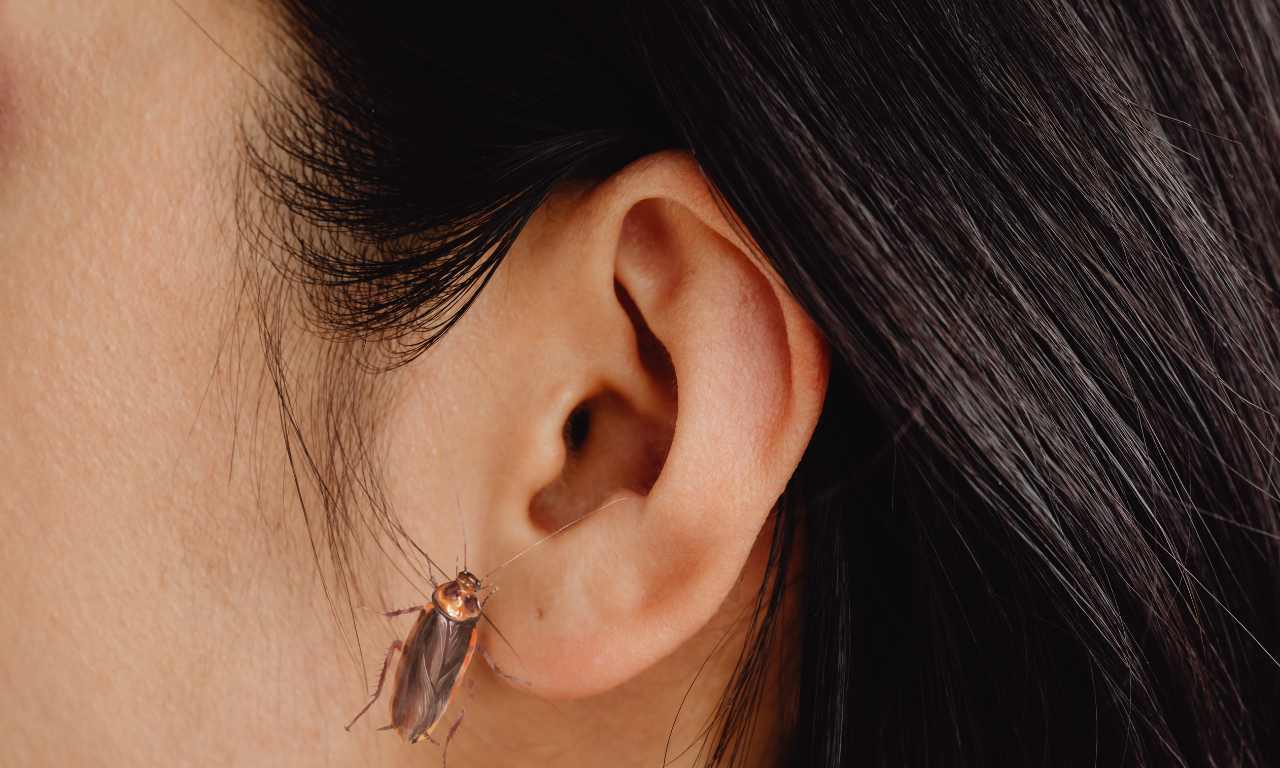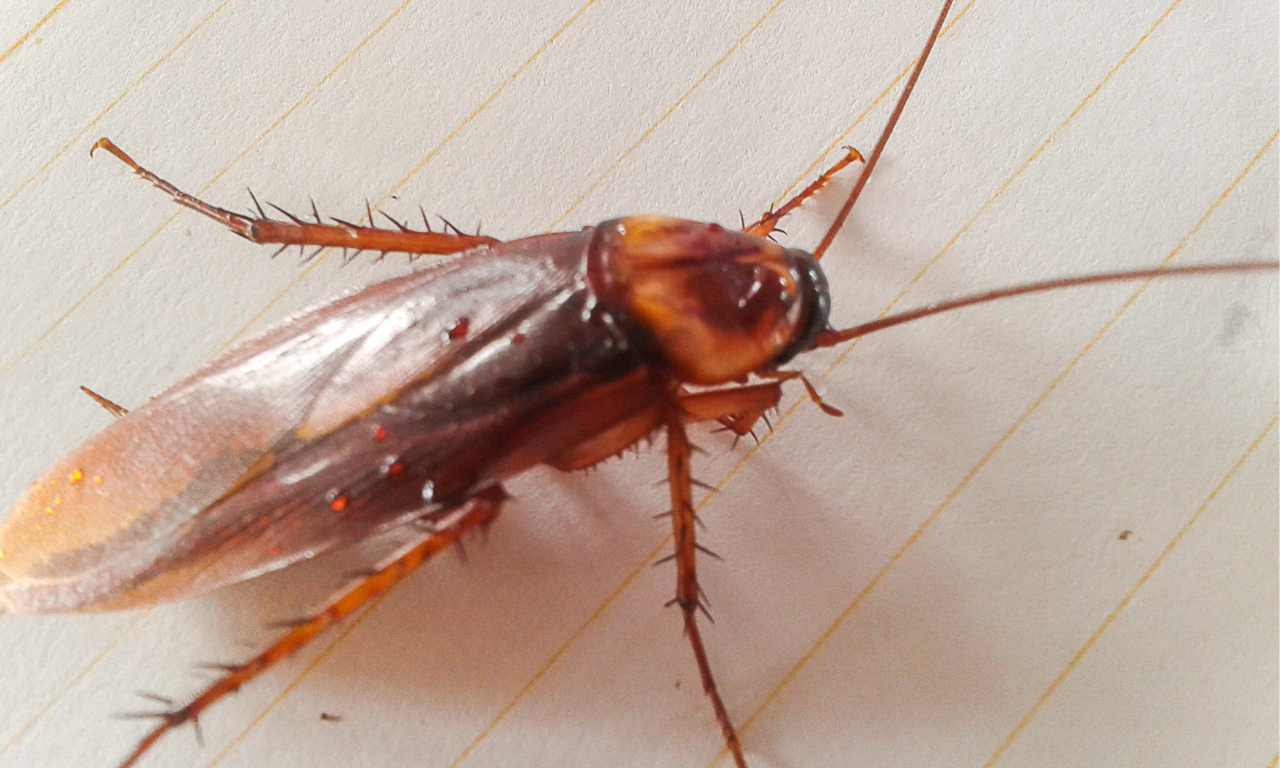
 It is possible for a cockroach to enter a person’s ear, although it is not a common occurrence.
It is possible for a cockroach to enter a person’s ear, although it is not a common occurrence.
Cockroaches are attracted to warm, moist environments, and the ear canal provides a suitable habitat for them. However, cockroaches are not typically interested in entering the ear canal, as there is not much food or shelter for them to find there.
If a cockroach does enter a person’s ear, it can cause a number of problems. The cockroach’s movement in the ear canal can be very uncomfortable and can cause itching, pain, and swelling. Additionally, the cockroach’s body parts can scratch the delicate skin of the ear canal, leading to infection.
If a cockroach is found in the ear, it should be removed as soon as possible. The best way to remove a cockroach from the ear is to use a pair of tweezers to gently pull it out. If the cockroach is not easily removed with tweezers, it may be necessary to flush it out with water or mineral oil.
It is also important to see a doctor if a cockroach is found in the ear, as an infection may have occurred. The doctor can clean the ear canal and prescribe medication to prevent or treat an infection.
Preventative measures can be taken to avoid cockroaches entering the ear, such as keeping the living area clean, using cockroach repellent, and keeping food sealed.
In summary, while it is possible for a cockroach to enter a person’s ear, it is not a common occurrence. If a cockroach is found in the ear, it should be removed as soon as possible and a doctor should be consulted to prevent or treat any potential infection.
How Common Is It Actually For a Bug to Crawl in Your Ear?
Reports of bugs crawling into a person’s ear are relatively rare, and it is not considered to be a common occurrence. While it is technically possible for a bug to enter the ear canal, there are several factors that make it unlikely.
Firstly, the ear canal is not a natural habitat for most bugs, and they are not typically attracted to the warm and moist environment that it provides. Bugs are typically more interested in finding food and shelter, and the ear canal does not offer much in the way of either.
Secondly, the ear canal is a relatively small and tight space, and it can be difficult for bugs to navigate. Many bugs are not small enough to easily fit into the ear canal, and those that are may have trouble maneuvering once they are inside.
Thirdly, many bugs have built-in mechanisms to prevent them from entering small spaces, such as eyes that can detect light and help them avoid dark areas like the ear canal.
Despite the above, there have been some reported cases of bugs crawling into a person’s ear. For example, in some tropical countries, small insects like moths, beetles and termites are known to crawl into human ears. This can happen when people are sleeping outside or in poorly-sealed homes.
If a bug does enter a person’s ear, it can cause a number of problems. The bug’s movement in the ear canal can be very uncomfortable and can cause itching, pain, and swelling. Additionally, the bug’s body parts can scratch the delicate skin of the ear canal, leading to infection.
Removing a bug from the ear can be a challenging task. The best way to remove a bug from the ear is to use a pair of tweezers to gently pull it out. If the bug is not easily removed with tweezers, it may be necessary to flush it out with water or mineral oil.
It is also important to see a doctor if a bug is found in the ear, as an infection may have occurred. The doctor can clean the ear canal and prescribe medication to prevent or treat an infection.
In summary, while it is possible for a bug to crawl into a person’s ear, it is not a common occurrence. If a bug is found in the ear, it should be removed as soon as possible and a doctor should be consulted to prevent or treat any potential infection. Preventative measures can be taken such as keeping living areas clean, using insect repellents, and keeping food sealed to avoid bugs entering the ear.
What Happens When A Roach Enters Your Ear?
 If a cockroach enters a person’s ear, it can cause a number of problems. The cockroach’s movement in the ear canal can be very uncomfortable and can cause itching, pain, and swelling. Additionally, the cockroach’s body parts can scratch the delicate skin of the ear canal, leading to infection.
If a cockroach enters a person’s ear, it can cause a number of problems. The cockroach’s movement in the ear canal can be very uncomfortable and can cause itching, pain, and swelling. Additionally, the cockroach’s body parts can scratch the delicate skin of the ear canal, leading to infection.
One of the first symptoms of a cockroach in the ear is a feeling of discomfort or itchiness in the ear. This may be accompanied by a sensation of something moving or crawling inside the ear. In some cases, the person may also experience pain, dizziness, or a ringing noise in the ear.
If the cockroach is alive, it may also make noise as it tries to move around in the ear canal. This can be a very distressing experience and can cause anxiety or panic in some people.
The cockroach’s presence in the ear can also cause physical damage to the ear canal. The cockroach’s body parts, such as its legs and antennae, can scratch the delicate skin of the ear canal, which can lead to irritation and infection. The cockroach’s feces and body parts can also cause an allergic reaction in some people, leading to redness and swelling in the ear canal.
If the cockroach is not removed from the ear in a timely manner, it can lead to an infection in the ear canal. This can cause severe pain, discharge from the ear, and even hearing loss in some cases.
Removing a cockroach from the ear can be a challenging task. The best way to remove a cockroach from the ear is to use a pair of tweezers to gently pull it out. If the cockroach is not easily removed with tweezers, it may be necessary to flush it out with water or mineral oil.
It is also important to see a doctor if a cockroach is found in the ear, as an infection may have occurred. The doctor can clean the ear canal and prescribe medication to prevent or treat an infection. The doctor can also check for any physical damage to the ear canal and refer the patient for further treatment if necessary.
In summary, a cockroach entering the ear can cause a range of symptoms including discomfort, pain, and infection. It is important to remove the cockroach as soon as possible and seek medical attention to prevent or treat any potential infection. Preventative measures can be taken such as keeping living areas clean, using insect repellents, and keeping food sealed to avoid cockroaches entering the ear.
Can Cockroaches Get In Your Brain?
It is highly unlikely for a cockroach to get into a person’s brain. The ear canal is the main way for cockroaches or any other bug to enter the human body, and it leads to the eardrum which separates the ear canal from the middle ear.
The middle ear contains small bones that transmit sound from the ear canal to the inner ear. The inner ear contains the cochlea, a spiral-shaped organ that converts sound waves into electrical signals that are sent to the brain. The brain is protected by the skull, which is a hard and thick bone structure that surrounds the brain and spinal cord.
There is no direct opening between the ear and the brain, so it would be extremely difficult for a cockroach to get through the bones and enter the brain. Even if a cockroach were to enter the ear canal, it would not be able to pass through the eardrum and reach the middle ear, let alone the inner ear and the brain.
Additionally, the body’s immune system would work to remove any foreign object that enters the body, including a cockroach. The ear canal has its own immune system, including small hairs called cilia that help to move dirt and debris out of the ear.
It’s important to note that it is extremely rare for a bug to enter the ear canal, and even rarer for it to reach the brain. If a bug does enter the ear, it is important to remove it as soon as possible and see a doctor to prevent or treat any potential infection.
In summary, it is highly unlikely for a cockroach to get into a person’s brain. The ear canal is the main way for cockroaches to enter the human body, but the ear canal does not lead directly to the brain, and it is protected by the skull.
Additionally, the body’s immune system would work to remove any foreign object that enters the body, including a cockroach. If a bug does enter the ear, it is important to remove it as soon as possible and see a doctor to prevent or treat any potential infection.
Welcome to my blog. I have been doing pest control for years since my house, garden and pets were always attacked by various kinds of pests and as a result I had to know proper pest control techniques that works. In this blog I share all the tips and tricks that I know and I hope you’ll find it helpful.
